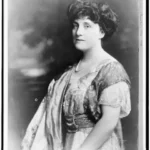 | |
Are We Downhearted? No! | |
| Author | Mary Roberts Rinehart |
|---|---|
| Published |
1912
|
| Language | English |
| Nationality | American |
| Genre | Detective Fiction, Mystery |
1912 Short Story
Are We Downhearted? No!
Are We Downhearted? No! is an English Detective Fiction, Mystery short story by American writer Mary Roberts Rinehart. It was first published in 1912.
Are We Downhearted? No!
by Mary Roberts Rinehart
I
There are certain people who will never understand this story, people who live their lives by rule of thumb. Little lives they are, too, measured by the letter and not the spirit. Quite simple too. Right is right and wrong is wrong.
That shadowy No Man’s Land between the trenches of virtue and sin, where most of us fight our battles and are wounded, and even die, does not exist for them.
The boy in this story belonged to that class. Even if he reads it he may not recognise it. But he will not read it or have it read to him. He will even be somewhat fretful if it comes his way.
“If that’s one of those problem things,” he will say, “I don’t want to hear it. I don’t see why nobody writes adventure any more.”
Right is right and wrong is wrong. Seven words for a creed, and all of life to live!
This is not a war story. But it deals, as must anything that represents life in this year of our Lord of Peace, with war. With war in its human relations. Not with guns and trenches, but with men and women, with a boy and a girl.
For only in the mass is war vast. To the man in the trench it reduces itself to the man on his right, the man on his left, the man across, beyond the barbed wire, and a woman.
The boy was a Canadian. He was twenty-two and not very tall. His name in this story is Cecil Hamilton. He had won two medals for life-saving, each in a leather case. He had saved people from drowning. When he went abroad to fight he took the medals along. Not to show. But he felt that the time might come when he would not be sure of himself. A good many men on the way to war have felt that way. The body has a way of turning craven, in spite of high resolves. It would be rather comforting, he felt, to have those medals somewhere about him at that time. He never looked at them without a proud little intake of breath and a certain swelling of the heart.
On the steamer he found that a medal for running had slipped into one of the cases. He rather chuckled over that. He had a sense of humour, in spite of his seven-word creed. And a bit of superstition, for that night, at dusk, he went out on to the darkened deck and flung it overboard.
The steamer had picked him up at Halifax–a cold dawn, with a few pinched faces looking over the rail. Forgive him if he swaggered up the gangway. He was twenty-two, he was a lieutenant, and he was a fighting man.
The girl in the story saw him then. She was up and about, in a short sport suit, with a white tam-o’-shanter on her head and a white woolen scarf tucked round her neck. Under her belted coat she wore a middy blouse, and when she saw Lieutenant Cecil Hamilton, with his eager eyes–not unlike her own, his eyes were young and inquiring–she reached into a pocket of the blouse and dabbed her lips with a small stick of cold cream.
Cold air has a way of drying lips.
He caught her at it, and she smiled. It was all over for him then, poor lad!
Afterward, when he was in the trenches, he wondered about that. He called it “Kismet” to himself. It was really a compound, that first day or two, of homesickness and a little furtive stirring of anxiety and the thrill of new adventure that was in his blood.
On the second afternoon out they had tea together, she in her steamer chair and he calmly settled next to her, in a chair belonging to an irritated English lawyer. Afterward he went down to his cabin, hung round with his new equipment, and put away the photograph of a very nice Toronto girl, which had been propped up back of his hairbrushes.
They got rather well acquainted that first day.
“You know,” he said, with his cup in one hand and a rather stale cake in the other, “it’s awfully bully of you to be so nice to me.”
She let that go. She was looking, as a matter of fact, after a tall man with heavily fringed eyes and English clothes, who had just gone by.
“You know,” he confided–he frequently prefaced his speeches with that–“I was horribly lonely when I came up the gangway. Then I saw you, and you were smiling. It did me a lot of good.”
“I suppose I really should not have smiled.” She came back to him with rather an effort. “But you caught me, you know. It wasn’t rouge. It was cold cream. I’ll show you.”
She unbuttoned her jacket, against his protest, and held out the little stick. He took it and looked at it.
“You don’t need even this,” he said rather severely. He disapproved of cosmetics. “You have a lovely mouth.”
“It’s rather large. Don’t you think so?”
“It’s exactly right.”
He was young, and as yet more interested in himself than in anything in the world. So he sat there and told her who he was, and what he hoped to do and, rather to his own astonishment, about the medals.
“How very brave you are!” she said.
That made him anxious. He hoped she did not think he was swanking. It was only that he did not make friends easily, and when he did meet somebody he liked he was apt to forget and talk too much about himself. He was so afraid that he gulped down his tepid tea in a hurry and muttered something about letters to write, and got himself away. The girl stared after him with a pucker between her eyebrows. And the tall man came and took the place he vacated.
Things were worrying the girl–whose name, by the way, was Edith. On programs it was spelled “Edythe,” but that was not her fault. Yes, on programs–Edythe O’Hara. The business manager had suggested deHara, but she had refused. Not that it mattered much. She had been in the chorus. She had a little bit of a voice, rather sweet, and she was divinely young and graceful.
In the chorus she would have remained, too, but for one of those queer shifts that alter lives. A girl who did a song and an eccentric dance had wrenched her knee, and Edith had gone on in her place. Something of her tomboy youth remained in her, and for a few minutes, as she frolicked over the stage, she was a youngster, dancing to her shadow.
She had not brought down the house, but a man with heavily fringed eyes, who watched her from the wings, made a note of her name. He was in America for music-hall material for England, and he was shrewd after the manner of his kind. Here was a girl who frolicked on the stage. The English, accustomed to either sensuous or sedate dancing, would fall hard for her, he decided. Either that, or she would go “bla.” She was a hit or nothing.
And that, in so many words, he told her that afternoon.
“Feeling all right?” he asked her.
“Better than this morning. The wind’s gone down, hasn’t it?”
He did not answer her. He sat on the side of the chair and looked her over.
“You want to keep well,” he warned her. “The whole key to your doing anything is vitality. That’s the word–Life.”
She smiled. It seemed so easy. Life? She was full-fed with the joy of it. Even as she sat, her active feet in their high-heeled shoes were aching to be astir.
“Working in the gymnasium?” he demanded.
“Two hours a day, morning and evening. Feel.”
She held out her arm to him, and he felt its small, rounded muscle, with a smile. But his heavily fringed eyes were on her face, and he kept his hold until she shook it off.
“Who’s the soldier boy?” he asked suddenly.
“Lieutenant Hamilton. He’s rather nice. Don’t you think so?”
“He’ll do to play with on the trip. You’ll soon lose him in London.”
The winter darkness closed down round them. Stewards were busy closing ports and windows with fitted cardboards. Through the night the ship would travel over the dangerous lanes of the sea with only her small port and starboard lights. A sense of exhilaration possessed Edith. This hurling forward over black water, this sense of danger, visualised by precautions, this going to something new and strange, set every nerve to jumping. She threw back her rug, and getting up went to the rail. Lethway, the manager, followed her.
“Nervous, aren’t you?”
“Not frightened, anyhow.”
It was then that he told her how he had sized the situation up. She was a hit or nothing.
“If you go all right,” he said, “you can have the town. London’s for you or against you, especially if you’re an American. If you go flat—-“
“Then what?”
She had not thought of that. What would she do then? Her salary was not to begin until the performances started. Her fare and expenses across were paid, but how about getting back? Even at the best her salary was small. That had been one of her attractions to Lethway.
“I’ll have to go home, of course,” she said. “If they don’t like me, and decide in a hurry, I–I may have to borrow money from you to get back.”
“Don’t worry about that.” He put a hand over hers as it lay on the rail, and when she made no effort to release it he bent down and kissed her warm fingers. “Don’t you worry about that,” he repeated.
She did worry, however. Down in her cabin, not so tidy as the boy’s–littered with her curiously anomalous belongings, a great bunch of violets in the wash bowl, a cheap toilet set, elaborate high-heeled shoes, and a plain muslin nightgown hanging to the door–down there she opened her trunk and got out her contract. There was nothing in it about getting back home.
For a few minutes she was panicky. Her hands shook as she put the document away. She knew life with all the lack of illusion of two years in the chorus. Even Lethway–not that she minded his casual caress on the deck. She had seen a lot of that. It meant nothing. Stage directors either bawled you out or petted you. That was part of the business.
But to-night, all day indeed, there had been something in Lethway’s face that worried her. And there were other things.
The women on the boat replied coldly to her friendly advances. She had spoken to a nice girl, her own age or thereabouts, and the girl’s mother or aunt or chaperon, whoever it was, had taken her away. It had puzzled her at the time. Now she knew. The crowd that had seen her off, from the Pretty Coquette Company–that had queered her, she decided. That and Lethway.
None of the girls had thought it odd that she should cross the ocean with Lethway. They had been envious, as a matter of fact. They had brought her gifts, the queer little sachets and fruit and boxes of candy that littered the room. In that half hour before sailing they had chattered about her, chorus unmistakably, from their smart, cheap little hats to their short skirts and fancy shoes. Her roommate, Mabel, had been the only one she had hated to leave. And Mabel had queered her, too, with her short-bobbed yellow hair.
She did a reckless thing that night, out of pure defiance. It was a winter voyage in wartime. The night before the women had gone down, sedately dressed, to dinner. The girl she had tried to speak to had worn a sweater. So Edith dressed for dinner.
She whitened her neck and arms with liquid powder, and slicked up her brown hair daringly smooth and flat. Then she put on her one evening dress, a black net, and pinned on her violets. She rouged her lips a bit too.
The boy, meeting her on the companionway, gasped.
That night he asked permission to move over to her table, and after that the three of them ate together, Lethway watching and saying little, the other two chattering. They were very gay. They gambled to the extent of a quarter each, on the number of fronds, or whatever they are, in the top of a pineapple that Cecil ordered in, and she won. It was delightful to gamble, she declared, and put the fifty cents into a smoking-room pool.
The boy was clearly infatuated. She looked like a debutante, and, knowing it, acted the part. It was not acting really. Life had only touched her so far, and had left no mark. When Lethway lounged away to an evening’s bridge Cecil fetched his military cape and they went on deck.
“I’m afraid it’s rather lonely for you,” he said. “It’s always like this the first day or two. Then the women warm up and get friendly.”
“I don’t want to know them. They are a stupid-looking lot. Did you ever see such clothes?”
“You are the only person who looks like a lady to-night,” he observed. “You look lovely. I hope you don’t mind my saying it?”
She was a downright young person, after all. And there was something about the boy that compelled candour. So, although she gathered after a time that he did not approve of chorus girls, was even rather skeptical about them and believed that the stage should be an uplifting influence, she told him about herself that night.
It was a blow. He rallied gallantly, but she could see him straggling to gain this new point of view.
“Anyhow,” he said at last, “you’re not like the others.” Then hastily: “I don’t mean to offend you when I say that, you know. Only one can tell, to look at you, that you are different.” He thought that sounded rather boyish, and remembered that he was going to the war, and was, or would soon be, a fighting man. “I’ve known a lot of girls,” he added rather loftily. “All sorts of girls.”
It was the next night that Lethway kissed her. He had left her alone most of the day, and by sheer gravitation of loneliness she and the boy drifted together. All day long they ranged the ship, watched a boxing match in the steerage, fed bread to the hovering gulls from the stern. They told each other many things. There had been a man in the company who had wanted to marry her, but she intended to have a career. Anyhow, she would not marry unless she loved a person very much.
He eyed her wistfully when she said that.
At dusk he told her about the girl in Toronto.
“It wasn’t an engagement, you understand. But we’ve been awfully good friends. She came to see me off. It was rather awful. She cried. She had some sort of silly idea that I’ll get hurt.”
It was her turn to look wistful. Oh, they were getting on! When he went to ask the steward to bring tea to the corner they had found, she looked after him. She had been so busy with her own worries that she had not thought much of the significance of his neatly belted khaki. Suddenly it hurt her. He was going to war.
She knew little about the war, except from the pictures in illustrated magazines. Once or twice she had tried to talk about it with Mabel, but Mabel had only said, “It’s fierce!” and changed the subject.
The uniforms scattered over the ship and the precautions taken at night, however, were bringing this thing called war very close to her. It was just beyond that horizon toward which they were heading. And even then it was brought nearer to her.
Under cover of the dusk the girl she had tried to approach came up and stood beside her. Edith was very distant with her.
“The nights make me nervous,” the girl said. “In the daylight it is not so bad. But these darkened windows bring it all home to me–the war, you know.”
“I guess it’s pretty bad.”
“It’s bad enough. My brother has been wounded. I am going to him.”
Even above the sound of the water Edith caught the thrill in her voice. It was a new tone to her, the exaltation of sacrifice.
“I’m sorry,” she said. And some subconscious memory of Mabel made her say: “It’s fierce!”
The girl looked at her.
“That young officer you’re with, he’s going, of course. He seems very young. My brother was older. Thirty.”
“He’s twenty-two.”
“He has such nice eyes,” said the girl. “I wish—-“
But he was coming back, and she slipped away.
During tea Cecil caught her eyes on him more than once. He had taken off his stiff-crowned cap, and the wind blew his dark hair round.
“I wish you were not going to the war,” she said unexpectedly. It had come home to her, all at once, the potentialities of that trim uniform. It made her a little sick.
“It’s nice of you to say that.”
There was a new mood on her, of confession, almost of consecration. He asked her if he might smoke. No one in her brief life had ever before asked her permission to smoke.
“I’ll have to smoke all I can,” he said. “The fellows say cigarettes are scarce in the trenches. I’m taking a lot over.”
He knew a girl who smoked cigarettes, he said. She was a nice girl too. He couldn’t understand it. The way he felt about it, maybe a cigarette for a girl wasn’t a crime. But it led to other things–drinking, you know, and all that.
“The fellows don’t respect a girl that smokes,” he said. “That’s the plain truth. I’ve talked to her a lot about it.”
“It wasn’t your friend in Toronto, was it?”
“Good heavens, no!” He repudiated the idea with horror.
It was the girl who had to readjust her ideas of life that day. She had been born and raised in that neutral ground between the lines of right and wrong, and now suddenly her position was attacked and she must choose sides. She chose.
“I’ve smoked a cigarette now and then. If you think it is wrong I’ll not do it any more.”
He was almost overcome, both at the confession and at her renunciation. To tell the truth, among the older Canadian officers he had felt rather a boy. Her promise reinstated him in his own esteem. He was a man, and a girl was offering to give something up if he wished it. It helped a lot.
That evening he laid out his entire equipment in his small cabin, and invited her to see it. He put his mother’s picture behind his brushes, where the other one had been, and when all was ready he rang for a stewardess.
“I am going to show a young lady some of my stuff,” he explained. “And as she is alone I wish you’d stay round, will you? I want her to feel perfectly comfortable.”
The stewardess agreed, and as she was an elderly woman, with a son at the front, a boy like Cecil, she went back to her close little room over the engines and cried a little, very quietly.
It was unfortunate that he did not explain the presence of the stewardess to the girl. For when it was all over, and she had stood rather awed before his mother’s picture, and rather to his surprise had smoothed her hair with one of his brushes, she turned to him outside the door.
“That stewardess has a lot of nerve,” she said. “The idea of standing in the doorway, rubbering!”
“I asked her,” he explained. “I thought you’d prefer having some one there.”
She stared at him.
II
Lethway had won the ship’s pool that day. In the evening he played bridge, and won again. He had been drinking a little. Not much, but enough to make him reckless.
For the last rubber or two the thought of Edith had obsessed him, her hand on the rail as he had kissed it, her cool eyes that were at once so wise and so ignorant, her lithe body in the short skirt and middy blouse. He found her more alluring, so attired, than she had been in the scant costume of what to him was always “the show.”
He pondered on that during all of a dummy hand, sitting low in his chair with his feet thrust far under the table. The show business was going to the bad. Why? Because nobody connected with it knew anything about human nature. He formulated a plan, compounded of liquor and real business acumen, of dressing a chorus, of suggesting the feminine form instead of showing it, of veiling it in chiffons of soft colours and sending a draft of air from electric fans in the wings to set the chiffons in motion.
“Like the Aurora,” he said to himself. “Only not so beefy. Ought to be a hit. Pretty? It will be the real thing!”
The thought of Edith in such a costume, playing like a dryad over the stage, stayed with him when the dummy hand had been played and he had been recalled to the game by a thump on the shoulder. Edith in soft, pastel-coloured chiffons, dancing in bare feet to light string music. A forest setting, of course. Pan. A goat or two. All that sort of thing.
On his way down to his cabin he passed her door. He went on, hesitated, came back and knocked.
Now Edith had not been able to sleep. Her thrifty soul, trained against waste, had urged her not to fling her cigarettes overboard, but to smoke them.
“And then never again,” she said solemnly.
The result was that she could not get to sleep. Blanketed to the chin she lay in her bunk, reading. The book had been Mabel’s farewell offering, a thing of perverted ideals, or none, of cheap sentiment, of erotic thought overlaid with words. The immediate result of it, when she yawned at last and turned out the light over her bed, was a new light on the boy.
“Little prig!” she said to herself, and stretched her round arms luxuriously above her head.
Then Lethway rapped. She sat up and listened. Then, grumbling, she got out and opened the door an inch or two. The lights were low outside and her own cabin dark. But she knew him.
“Are we chased?” she demanded. In the back of her mind, fear of pursuit by a German submarine was dogging her across the Atlantic.
“Sure we are!” he said. “What are you so stingy about the door for?”
She recognised his condition out of a not inconsiderable experience and did her best to force the door shut, but he put his foot over the sill and smiled.
“Please go away, Mr. Lethway.”
“I’ll go if you’ll kiss me good night.”
She calculated the situation, and surrendered. There was nothing else to do. But when she upturned her face he slipped past her and into the room. Just inside the door, swinging open and shut with every roll of the ship, he took her in his arms and kissed her, not once but many times.
She did not lose her head. She had an arm free and she rang the bell. Then she jerked herself loose.
“I have rung for the stewardess,” she said furiously. “If you are here when she comes I’ll ask for help.”
“You young devil!” was all he said, and went, slamming the door behind him. His rage grew as he reached his own cabin. Damn the girl, anyhow! He had not meant anything. Here he was, spending money he might never get back to give her a chance, and she called the stewardess because he kissed her!
As for the girl, she went back to bed. For a few moments sheer rage kept her awake. Then youth and fatigue triumphed and she fell asleep. Her last thought was of the boy, after all. “He wouldn’t do a thing like that,” she reflected. “He’s a gentleman. He’s the real thing. He’s—-“
Her eyes closed.
Lethway apologised the next day, apologised with an excess of manner that somehow made the apology as much of an insult as the act. But she matched him at that game–took her cue from him, even went him one better as to manner. When he left her he had begun to feel that she was no unworthy antagonist. The game would be interesting. And she had the advantage, if she only knew it. Back of his desire to get back at her, back of his mocking smile and half-closed eyes, he was just a trifle mad about her since the night before.
That is the way things stood when they reached the Mersey. Cecil was in love with the girl. Very earnestly in love. He did not sleep at night for thinking about her. He remembered certain semi-harmless escapades of his college days, and called himself unworthy and various other things. He scourged himself by leaving her alone in her steamer chair and walking by at stated intervals. Once, in a white sweater over a running shirt, he went to the gymnasium and found her there. She had on a “gym” suit of baggy bloomers and the usual blouse. He backed away from the door hastily.
At first he was jealous of Lethway. Then that passed. She confided to him that she did not like the manager. After that he was sorry for him. He was sorry for any one she did not like. He bothered Lethway by walking the deck with him and looking at him with what Lethway refused to think was compassion.
But because, contrary to the boy’s belief, none of us is quite good or quite evil, he was kind to the boy. The khaki stood for something which no Englishman could ignore.
“Poor little devil!” he said on the last day in the smoking room, “he’s going to a bad time, all right. I was in Africa for eight years. Boer war and the rest of it. Got run through the thigh in a native uprising, and they won’t have me now. But Africa was cheery to this war.”
He asked the boy into the smoking room, which he had hitherto avoided. He had some queer idea that he did not care to take his uniform in there. Absurd, of course. It made him rather lonely in the hours Edith spent in her cabin, preparing variations of costume for the evening out of her small trunk. But he was all man, and he liked the society of men; so he went at last, with Lethway, and ordered vichy!
He had not allowed himself to think much beyond the end of the voyage. As the ship advanced, war seemed to slip beyond the edge of his horizon. Even at night, as he lay and tossed, his thoughts were either of the next day, when he would see Edith again, or of that indefinite future when he would return, covered with honors, and go to her, wherever she was.
He never doubted the honors now. He had something to fight for. The medals in their cases looked paltry to him, compared with what was coming. In his sleep he dreamed of the V.C., dreams he was too modest to put into thoughts in waking hours.
Then they reached the Mersey. On the last evening of the voyage he and Edith stood on the upper deck. It was a zone of danger. From each side of the narrowing river flashlights skimmed the surface of the water, playing round but never on the darkened ship. Red and green lights blinked signals. Their progress was a devious one through the mine-strewn channel. There was a heavy sea even there, and the small lights on the mast on the pilot boat, as it came to a stop, described great arcs that seemed, first to starboard, then to port, to touch the very tips of the waves.
“I’m not crazy about this,” the girl said, as the wind tugged at her skirts. “It frightens me. Brings the war pretty close, doesn’t it?”
Emotion swelled his heart and made him husky–love and patriotism, pride and hope, and a hot burst of courage.
“What if we strike a mine?” she asked.
“I wouldn’t care so much. It would give me a chance to save you.”
Overhead they were signalling the shore with a white light. Along with the new emotions that were choking him came an unaccustomed impulse of boastfulness.
“I can read that,” he said when she ignored his offer to save her. “Of course it’s code, but I can spell it out.”
He made a move to step forward and watch the signaler, but she put her hand on his arm.
“Don’t go. I’m nervous, Cecil,” she said.
She had called him by his first name. It shook him profoundly, that and the touch of her hand on his arm.
“Oh, I love you, love you!” he said hoarsely. But he did not try to take her in his arms, or attempt to caress the hand that still clung to him. He stood very erect, looking at the shadowy outline of her. Then, her long scarf blowing toward him, he took the end of it and kissed that very gravely.
“I would die for you,” he said.
Then Lethway joined them.
III
London was not kind to him. He had felt, like many Canadians, that in going to England he was going home. But England was cold.
Not the people on the streets. They liked the Canadians and they cheered them when their own regiments went by unhailed. It appealed to their rampant patriotism that these men had come from across the sea to join hands with them against common foe. But in the clubs, where his letters admitted the boy, there was a different atmosphere. Young British officers were either cool or, much worse, patronising. They were inclined to suspect that his quiet confidence was swanking. One day at luncheon he drank a glass of wine, not because he wanted it but because he did not like to refuse. The result was unfortunate. It loosened his tongue a bit, and he mentioned the medals.
Not noisily, of course. In an offhand manner, to his next neighbor. It went round the table, and a sort of icy silence, after that, greeted his small sallies. He never knew what the trouble was, but his heart was heavy in him.
And it rained.
It was always raining. He had very little money beyond his pay, and the constant hiring of taxicabs worried him. Now and then he saw some one he knew, down from Salisbury for a holiday, but they had been over long enough to know their way about. They had engagements, things to buy. He fairly ate his heart out in sheer loneliness.
There were two hours in the day that redeemed the others. One was the hour late in the afternoon when, rehearsal over, he took Edith O’Hara to tea. The other was just before he went to bed, when he wrote her the small note that reached her every morning with her breakfast.
In the seven days before he joined his regiment at Salisbury he wrote her seven notes. They were candid, boyish scrawls, not love letters at all. This was one of them:
Dear Edith: I have put in a rotten evening and am just going to bed. I am rather worried because you looked so tired to-day. Please don’t work too hard.
I am only writing to say how I look forward each night to seeing you the next day. I am sending with this a small bunch of lilies of the valley. They remind me of you. CECIL.
The girl saved those letters. She was not in love with him, but he gave her something no one else had ever offered: a chivalrous respect that pleased as well as puzzled her.
Once in a tea shop he voiced his creed, as it pertained to her, over a plate of muffins.
“When we are both back home, Edith,” he said, “I am going to ask you something.”
“Why not now?”
“Because it wouldn’t be quite fair to you. I–I may be killed, or something. That’s one thing. Then, it’s because of your people.”
That rather stunned her. She had no people. She was going to tell him that, but she decided not to. She felt quite sure that he considered “people” essential, and though she felt that, for any long period of time, these queer ideas and scruples of his would be difficult to live up to, she intended to do it for that one week.
“Oh, all right,” she said, meekly enough.
She felt very tender toward him after that, and her new gentleness made it all hard for him. She caught him looking at her wistfully at times, and it seemed to her that he was not looking well. His eyes were hollow, his face thin. She put her hand over his as it lay on the table.
“Look here,” she said, “you look half sick, or worried, or something. Stop telling me to take care of myself, and look after yourself a little better.”
“I’m all right,” he replied. Then soon after: “Everything’s strange. That’s the trouble,” he confessed. “It’s only in little things that don’t matter, but a fellow feels such a duffer.”
On the last night he took her to dinner–a small French restaurant in a back street in Soho. He had heard about it somewhere. Edith classed it as soon as she entered. It was too retiring, too demure. Its very location was clandestine.
But he never knew. He was divided that night between joy at getting to his regiment and grief at leaving her. Rather self-engrossed, she thought.
They had a table by an open grate fire, with a screen “to shut off the draft,” the waiter said. It gave the modest meal a delightfully homey air, their isolation and the bright coal fire. For the first time they learned the joys of mussels boiled in milk, of French souffle and other things.
At the end of the evening he took her back to her cheap hotel in a taxicab. She expected him to kiss her. Her experience of taxicabs had been like that. But he did not. He said very little on the way home, but sat well back and eyed her wistful eyes. She chattered to cover his silence–of rehearsals, of–with reservations–of Lethway, of the anticipated London opening. She felt very sad herself. He had been a tie to America, and he had been much more than that. Though she did not realise it, he had had a profound effect on her. In trying to seem what he thought her she was becoming what he thought her. Her old reckless attitude toward life was gone, or was going.
The day before she had refused an invitation to a nig







